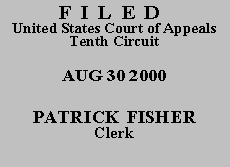

| RAUL GOMEZ,
Plaintiff-Appellant, v. ALLIEDSIGNAL, INC., also known as AlliedSignal Technical Services Corporation; BENJAMIN M. BOYKIN, Site Manager; JAMES E. MAGER, Asst. Site Manager, Defendants-Appellees. |
|
Raul Gomez, proceeding pro se, appeals from an order of the district court that grants summary judgment to defendants on his claim under the Age Discrimination in Employment Act (ADEA), 29 U.S.C. §§ 621-34, and enforces a handwritten settlement and release with respect to his other claims. We have jurisdiction under 28 U.S.C. § 1291.
Mr. Gomez formerly worked for defendant AlliedSignal, Inc. After he was denied a promotion, he filed suit alleging discrimination based on age, gender, and national origin, district court No. 96-123. He was later terminated from employment, and filed a second suit alleging retaliation, district court No. 97-348. After a settlement conference, the parties executed a handwritten settlement and release to dispose of all claims in both cases. Plaintiff later refused to sign the formalized settlement agreement. The district court concluded that the handwritten settlement and release was enforceable, and dismissed plaintiff's claims.
In the appeal that followed, we rejected plaintiff's arguments as untimely or without merit. See Gomez v. AlliedSignal, Inc., No. 98-2110, 1999 WL 89040, at **2 (10th Cir. Feb. 23, 1999) (order and judgment). However, we remanded for the district court to determine whether the handwritten settlement and release (which was not in the prior record on appeal) satisfied the requirements of the Older Workers Benefits Protection Act (OWBPA), 29 U.S.C. § 626, which was necessary for it to constitute a valid waiver of plaintiff's ADEA claim. See id. at **2-**3.
On remand, the district court adopted the proposed findings and recommended disposition of the magistrate judge, holding that, in any event, plaintiff's ADEA claim was barred by his failure to exhaust administrative remedies by filing this claim with the Equal Employment Opportunity Commission before he filed suit. The district court therefore granted summary judgment to defendants on plaintiff's ADEA claim and enforced the settlement and release against plaintiff's other claims.
"We review a grant of summary judgment de novo, applying the same legal standard as the district court." Myers v. Oklahoma County Bd. of County Comm'rs, 151 F.3d 1313, 1316 (10th Cir. 1998). Summary judgment is appropriate "if the pleadings, depositions, answers to interrogatories, and admissions on file, together with the affidavits, if any, show that there is no genuine issue as to any material fact and that the moving party is entitled to a judgment as a matter of law." Fed. R. Civ. P. 56(c).
In this appeal, plaintiff argues that the handwritten settlement and release is not valid and that his ADEA claim is not waived. We have reviewed appellant's brief, the district court's order, and the record on appeal. We find no error, and affirm for substantially the same reasons as those set forth in the magistrate judge's proposed findings and recommended disposition, as adopted by the district court's October 5, 1999 amended order.
As a final matter, AlliedSignal has moved to correct the district court judgment in both cases, as the district court erroneously referred to the "American with Disabilities Act" instead of the Age Discrimination in Employment Act. R. Doc. 43 (No. 96-123); R. Doc. 30 (No. 97-348). The motion is granted. The district court is directed to correct the clerical error in the judgment in both cases. See Fed. R. App. P. 10(e).
AFFIRMED. The mandate shall issue forthwith.
Entered for the Court
Circuit Judge
*. This order and judgment is not binding precedent, except under the doctrines of law of the case, res judicata, and collateral estoppel. The court generally disfavors the citation of orders and judgments; nevertheless, an order and judgment may be cited under the terms and conditions of 10th Cir. R. 36.3.